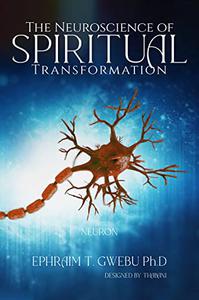
The Neuroscience of Spiritual Transformation by Ephraim T. Gwebu
English | December 18, 2022 | ISBN: N/A | ASIN: B0BQLWXF2X | 115 pages | MOBI | 1.60 Mb
Many Christians in the world live a life of contradictions. They are fully aware and thoroughly cognizant of what is expected of them and yet their practices do not reflect that. There is a need for spiritual transformation in these Christians. This book proposes that spiritual transformation has everything to do with our mind (brain function) control. It describes how a recently discovered brain phenomenon called neuroplasticity (brain malleability) can be harnessed to bring about spiritual transformation.
The book identifies some incongruities (conflicts) in the life of a Christian. It then describes the brain as the pinnacle of God's creation. Neurons (also called nerve cells) are the basic units of the brain. Neurons receive sensory input from the external world. For example, they send motor commands to our muscles to act, interpret what our ears hear and what our eyes see, and coordinate all the necessary functions of life. Their interactions define who we are as people created in the image of God. Neurons make this possible through a highly complex and sophisticated network (fibers) called neural pathways constituting what neuroscientist refer to as the NeuroverseTM; that is influenced by every thought we have, every challenge we encounter, every new perspective we become aware of, as well as every habit we develop.
The amazing thing is that the brain is capable of undergoing remarkable changes because of neuroplasticity. Everything that we experience changes the brain. Whenever, we decide to learn something, we create new neurons that form neural networks for that learning. This process of neuroplasticity occurs throughout the lifespan. The book attempts to show how the Christian NeuroverseTM of contradictions can be transformed into one that pleases the LORD through a Christ-centered mindset, mindfulness, mindsight, self-talk, visualization, minimizing wandering and distractions, acts of kindness and humility. An act of kindness causes the brain to produce a chemical that makes the kind person feel happy, warm, and fuzzy inside. The book proposes simple and practical steps to accomplish Christ-Centeredness in a Christian without scientific jargons.
Links are Interchangeable - No Password - Single Extraction



